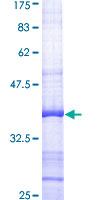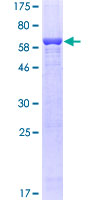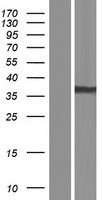order histories, retained contact details for faster checkout, review submissions, and special promotions.
Forgot password?
order histories, retained contact details for faster checkout, review submissions, and special promotions.
Locations
Orders Processing,
Shipping & Receiving,
Warehouse
2 Shaker Rd Suites
B001/B101
Shirley, MA 01464
Production Lab
Floor 6, Suite 620
20700 44th Avenue W
Lynnwood, WA 98036
Telephone Numbers
Tel: +1 (206) 374-1102
Fax: +1 (206) 577-4565
Contact Us
Additional Contact Details
order histories, retained contact details for faster checkout, review submissions, and special promotions.
Forgot password?
order histories, retained contact details for faster checkout, review submissions, and special promotions.
AKR1B1 / Aldose Reductase
aldo-keto reductase family 1, member B1 (aldose reductase)
AKR1B1 / Aldose Reductase is a member of the aldo/keto reductase superfamily, which consists of more than 40 known enzymes and proteins. This member catalyzes the reduction of a number of aldehydes, including the aldehyde form of glucose, and is thereby implicated in the development of diabetic complications by catalyzing the reduction of glucose to sorbitol. Multiple pseudogenes have been identified for this gene. The nomenclature system used by the HUGO Gene Nomenclature Committee to define human aldo-keto reductase family members is known to differ from that used by the Mouse Genome Informatics database.
| Gene Name: | aldo-keto reductase family 1, member B1 (aldose reductase) |
| Synonyms: | AKR1B1, Aldose reductase, ALDR1, ADR, Aldehyde reductase, Aldehyde reductase 1, ALR2, Lii5-2 CTCL tumor antigen, Low Km aldose reductase |
| Target Sequences: | NM_001628 NP_001619.1 P15121 |
Publications (1)






If you do not find the reagent or information you require, please contact Customer.Support@LSBio.com to inquire about additional products in development.









